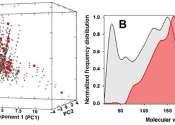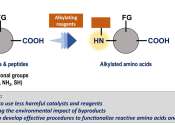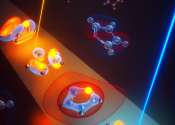Chemists shows hemoprotein catalysis is way more complicated than we thought
Sometimes, serendipity—or just plain luck—still plays a pivotal role in scientific discovery. Recently, a team of chemists was experimenting with using a biocatalytic process to trigger a cyclopropanation reaction, which ...









